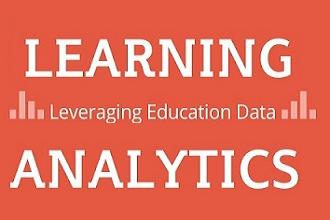Learning Analytics
What is analytics? This word is always associated with
either statistics or metrics. However, analytics is the detection and communication
of meaningful patterns in data. Consequently, analyzing and analyzing data is a
necessary tool in every field that helps to make decisions and find solutions
to problems that arise around the world.
Analyzing data, i.e. its collection and measurement is quite crucial in
the field of education. But what is the purpose of analyzing this data and what
can the results of this data give us? The answer is quite simple and can be
easily anticipated. It enables us to create more solid grounds and make more
valid, objective and reliable decisions rather than to rely on our instincts or
experiences of individuals. Therefore the best term that is more applicable in
this case is learning analytics.
What is Learning Analytics?
Learning analytics is the measurement,
collection, analysis and reporting of data about learners, the purpose of which
is to understand and evaluate this or that issue connected with their learning
and the environment in which the learning occurs. The key that can help us to
get the answers as to how form education is Big Data. Big Data is a plethora of data and
datasets that are enormously big and can capture, store, manage and analyze
them.
Learning analytics provides evidence about the success and also challenges of
the learning environment that can help to take further steps according to the
results of the analyzed data. Owing to academic analytics we can
intercede when learners are having problems, i.e. detect performance
difficulties and provide immediate feedback; predict future learners’
performance, and build predicting model profiles of students who are at risk,
i.e. dropout rates and therefore offer those students help; whereas owing to
learning analytics learners can get up-to-date information about their own
learning, and try to improve it based on the evidence given by the learning
analytics. Therefore with the help of the learning analytics we can make
the quality of the teaching and learning more efficient.
The history
of learning analytics dates back to the recent rise in popularity of MOOCs.
Education acquired through these online courses assesses large groups of
learners. At the same time it constitutes sets of learner activity data that
can be used to develop analytics. Analytics will be able to follow students’
digital traces in online or virtual learning environments in order to improve
teaching and learning and the environments in which these take place. (Ferguson,
2014) You may consider that you are spying on your students. However, this is
the best opportunity for you to control all of your students’ learning process
at once. This is also a good way for students, because they are always
organized and structured. Therefore they offer ways for learners to improve and
develop while a course is in progress. Mostly, these analytics focus on the
development and measurement of key skills: reflective, collaborative, and
networking skills. Isn’t it simple?
Imagine a situation where you assign a task
to your students, but you are not sure whether they remember about it or
whether they come across any difficulties while doing it. What are you going to
do? You will wait for the next class to find answers to your questions. This is
a familiar, traditional situation in a traditional school. Let’s take a minute
and think that you are using new tech tools and platforms in your teaching and
you are assigning task in www.moodle.com or other platform. Here you have
various opportunities, like discussions boards, where your students can
communicate with you and their peers and ask questions referring to this or
that assignment. What’s more important you can follow their learning process,
for instance how or when they study how many times one logged in to check the homework assignment, how
active he/ she was in the discussion
boards.
For more information follow this link on
TEDTALKS by Daphne Koller
and by Rebecca Ferguson
You
may find their information useful and helpful .They both provide a clear understanding
of what the learning
analytics is about.
P. S.
Upon completion
their education we must make sure that students leave the program with detailed
knowledge in the area of their specialization, alongside with the skills necessary
to keep on throughout their lives. They
need critical skills to estimate and evaluate information and situations,
reflective skills to design new activities and skills in networking to act team
wise, either as a team member or team leader. Learning analytics will help to
develop these skills.

Комментариев нет:
Отправить комментарий